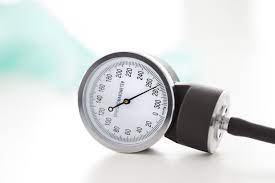
Read in this article about the cause of hypertension, it is a common condition where the long-term force of the blood against your artery walls is high enough to cause health problems such as heart disease. Hypertension is a primary risk factor for cardiovascular disease, including stroke, heart attack, heart failure and aneurysm. Managing blood pressure is essential to maintaining health and reducing the risk of these dangerous conditions.
1. Too much salt
Did you know that too much salt can lead to high blood pressure? High blood pressure can lead to heart disease and stroke.
The daily sodium limit is 2,300 milligrams (mg). Most Americans consume more than 2,300 mg per day.
If you’re concerned about your salt intake, try these suggestions:
-Instead of salt, use fresh herbs in your recipes. When cooking meat such as chicken or pork, you can also replace lemon juice or vinegar with salt.
-Choose lower-sodium or sodium-free canned goods, such as beans and soups.
-Reduce your intake of processed foods such as frozen dinners and canned soups.
2. Inactivity
We understand that your time is valuable. We get it, we really do. With work, social life and trying to keep up with all the drama on TV, it can feel like there aren’t enough hours in the day.
But when it comes to your health and fitness, nothing is more important than taking care of yourself.
Exercise is one of the best ways to improve your mood and manage stress – and what better way to unwind after a long day at work? We have some ideas for how you can fit exercise into your schedule – Articlewine:
– Go for a walk during your lunch or after dinner. Walking may seem like an extra step on top of everything else you have to do during the day, but if you make it part of your routine and stick with it, it will become second nature. You’ll be surprised how much better you feel after just one step!
– Set aside time in your calendar for training or other physical activities. If possible, try to do it outside to make it more fun and enjoyable (and cheaper too). You will probably look forward to these training sessions because they are something new and exciting for you.
3. Smoking and consumption of alcohol
Both smoking and alcohol are bad for your health. Wine information on the article
Tobacco use is linked to lung cancer, heart disease and stroke. It can also increase your chances of developing cataracts, tuberculosis, osteoporosis and diabetes. Furthermore, the chemicals in cigarettes can cause birth defects and other negative effects in people exposed to secondhand smoke.
Drinking too much alcohol increases your chances of developing a number of health problems, including liver disease, high blood pressure, stroke and heart disease. Alcohol consumption is also associated with injuries such as car accidents, falls and burns.
4. Stress and depression
Stress and depression are similar in that they are both psychological problems, but they are also different. Stress is a state of worry or tension caused by something in your life, such as a work problem or relationship problems. Depression occurs when you are sad for a long period of time.
Stress can lead to depression, but it is not the same as depression. You may find that stress makes you feel depressed, or that depressed people experience stress more often than others.
5. Obesity and overweight
Obesity and overweight are major health problems that can lead to a variety of diseases and conditions.
Obesity is defined as a body mass index (BMI) greater than 30, while overweight is defined as a BMI between 25 and 29.9.
Being overweight or obese can lead to a number of health problems, including high blood pressure, high cholesterol, type 2 diabetes and heart disease.
In addition, being overweight or obese can increase your risk of developing certain cancers, such as breast cancer in women and colon cancer in men. It also increases your chances of developing osteoarthritis and other degenerative joint diseases such as rheumatoid arthritis.
6. Poor diet and lack of nutrients in your food
It’s no secret that a poor diet can lead to a number of health problems, from obesity to heart disease. But did you know that it can also cause depression?
Numerous studies have shown that people who eat a healthy diet have lower rates of depression than those who do not. The reason for this is simple: eating right helps your body run smoothly, which in turn keeps your mind running smoothly.
When you don’t eat enough protein or fiber, or eat too much sugar or salt, your body doesn’t get the nutrients it needs to stay healthy and happy. This causes inflammation in your body, which makes it hard for your brain to function properly – and when your brain isn’t working properly, it’s hard to be happy!